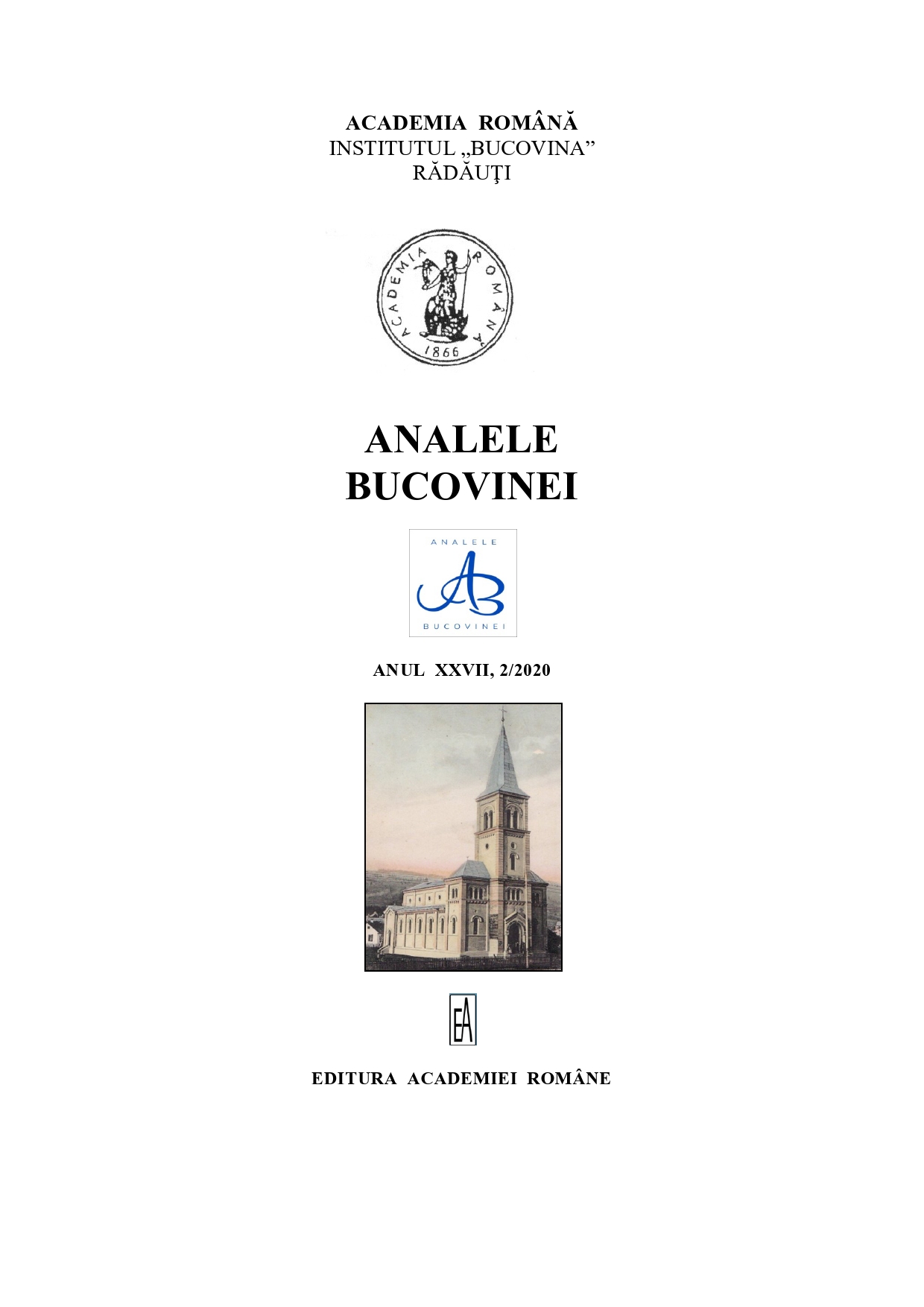HUTELE BUCOVINEI.
KARLSBERG-GURA PUTNEI (1797–1827)
Bukovinaʼs Glass Factories. Karlsberg-Gura Putnei (1797–1827)
Author(s): Ovidiu BataSubject(s): Economic history
Published by: Editura Academiei Române
Keywords: glass factory; Rădăuți Economic Directorate; Jossel Reichenberg; Franz Pauly; Lubaczow; Galicia; German-Bohemian colonists; glass-makers; woodworkers; Putna Glasshut; Karlsberg; Gura Putnei;
Summary/Abstract: The second glass factory in Bukovina was founded in 1897 by Jossel Reichenberg, a Jewish merchant from Rădăuți, and Franz Pauly, the head of the Economic Directorate of the Rădăuți Domain, a territory belonging to the Religious Fund. The first glass producers were German-Bohemians, who came from the glass factory in Rozaniczka / Rosendorf-Lubaczow / Lubachev (Galicia), a factory closed shortly before. Six years later (in June 1803), 35 logger families came from the Prachin District of Bohemia and settled in Karlsberg. Through the contract, each family received land, construction wood for houses and cash advances for the purchase of cattle and tools. Everylumbermanhadtosupplytheneeds of theso-calledglass or potash“huts”annuallywith 50 cubic or 100 LowerAustrianKlafter of firewood. In 1801, the factory became the property of the Rădăuți Domain by purchase. Originallycalled “Putna Glasshut”, thecolonywasnamedKarlsberg in honor of the president of the Aulic War Council, Archduke Karl, after 1803. In the following years serious conflicts arose between the Economic Directorate and the lumbermen because of the latterʼs dissatisfaction with the severe terms of settlement and labor. Some working families decided to leave Karlsberg and returned to Bohemia or Galicia. Several families settled in Rădăuți and Baineț. In their place came an equal number of Bohemian German families who lived scattered throughout Bukovina and had no property. On July 14, 1827, after 30 years of activity, the factory in Kalsberg, poorly managed by Franz Kuppetz, closed permanently and left the workers without a means of livelihood. They were forced to work in agriculture or in other glass factories. After the Union of Bukovina with Romania, the settlement was named Gura Putnei.
Journal: ANALELE BUCOVINEI
- Issue Year: 55/2020
- Issue No: 2
- Page Range: 399-412
- Page Count: 14
- Language: Romanian

